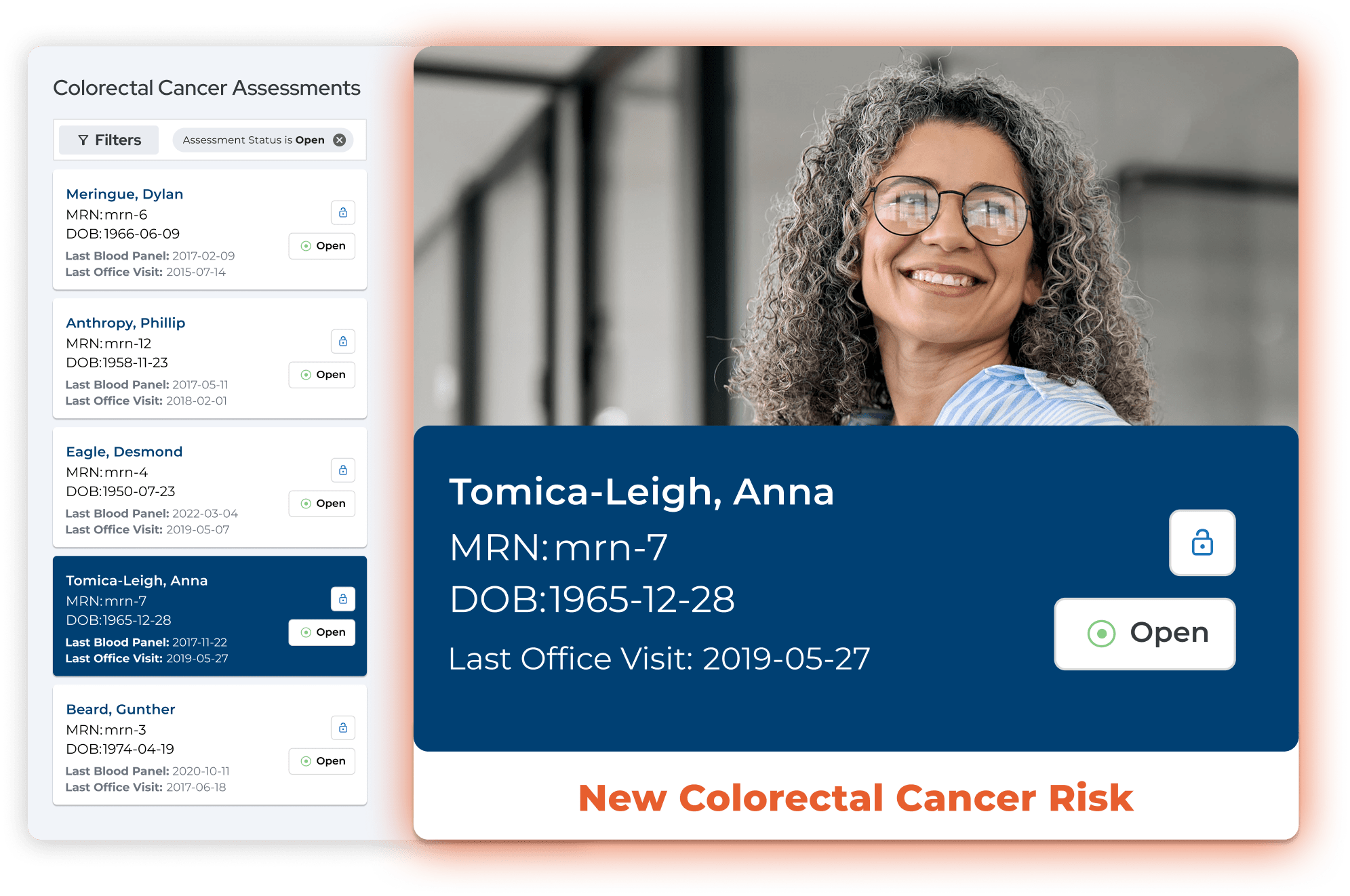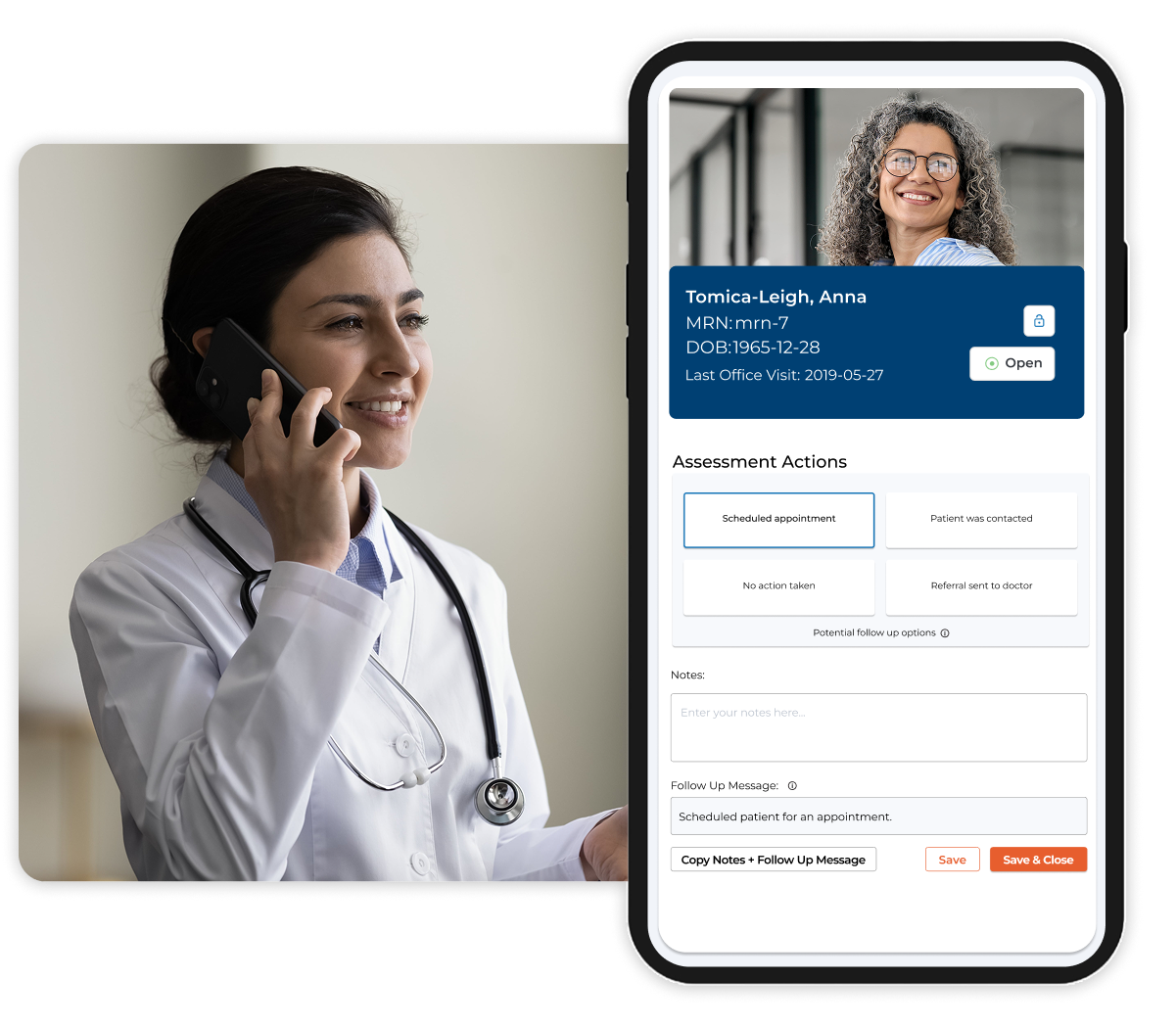
Use Advanced Clinical AI to Detect Colorectal Cancer Risk
Reveal for Colorectal Cancer uses your existing data to identify patients who appear to be at a higher risk for colorectal cancer and other lower GI disorders, but who are overdue for standard screening.
How Reveal for Colorectal Cancer Works
Reveal for Colorectal Cancer makes early identification simple, supporting your team’s current approach to care.
Deliver More Proactive GI Care
Reveal for Colorectal Cancer equips healthcare organizations with new strategies and operational improvements to efficiently identify patients at higher risk of colorectal cancer and other lower GI disorders, without requiring more staff or resources.


Deliver More Proactive GI Care
Reveal for Colorectal Cancer equips healthcare organizations with new strategies and operational improvements to efficiently identify patients at higher risk of colorectal cancer and other lower GI disorders, without requiring more staff or resources.
The Impact of Colorectal Cancer
According to the CDC, colorectal cancer is the fourth leading cause of cancer death in the U.S., but it doesn’t have to be. Few preventive interventions are as reliably effective in reducing avoidable death as screening for colorectal cancer.
Many are working to increase screening rates of colorectal cancer in the United States with the goal of achieving 80%. However, approximately 32% of age-eligible U.S. adults do not follow the current colorectal cancer screening guidelines. Colorectal cancer can even be prevented if asymptomatic polyps and other early-stage cancers are detected and treated early. Better tools and associated clinical outreach are needed to encourage patient compliance, particularly for patients at highest risk.
The Impact of Colorectal Cancer
According to the CDC, colorectal cancer is the fourth leading cause of cancer death in the U.S., but it doesn’t have to be. Few preventive interventions are as reliably effective in reducing avoidable death as screening for colorectal cancer.
Many are working to increase screening rates of colorectal cancer in the United States with the goal of achieving 80%. However, approximately 32% of age-eligible U.S. adults do not follow the current colorectal cancer screening guidelines. Colorectal cancer can even be prevented if asymptomatic polyps and other early-stage cancers are detected and treated early. Better tools and associated clinical outreach are needed to encourage patient compliance, particularly for patients at highest risk.
Published Research
Reveal for Colorectal Cancer has been thoroughly studied and tested in a number of different clinical settings to prove real-world efficacy.







